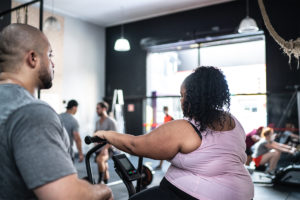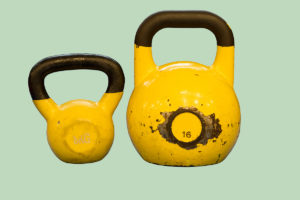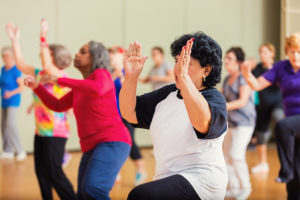Skills/Tools for Personal Trainers
Children Prefer Fun Physical Activity
Key factors for children to increase physical movement are social support, fun and outdoor activity, research shows.
Fitness Social Media Images
How are you using imagery in social media to promote fitness? Research suggests weight-inclusive imagery is more effective.
Kettlebell Training and Muscular Fitness in Men
To improve muscular endurance with kettlebell training, a periodized 6-week program produced more improvement than a nonperiodized one.
Using Behavior Change Apps
To understand how apps support behavior change and how well-qualified fitness and wellness professionals may use them to further their clients’ goals, it’s important to embrace the fundamental truth that Pascal observed.
What Is Game Intelligence?
Psychological attributes and “game intelligence” are the most important factors if an athlete wants to excel.
Exercise for Diabetes
To help those who manage diabetes, and the fit pros who train them, the ACSM issued updated guidelines on exercise for diabetes.
The Connection Between Pets and Wellness
Is there scientific evidence that pets can help us heal and thrive? And should personal trainers factor it into their program design?
Training Volume: Low Load Versus High Load
A new study provides insight into whether to go heavy with fewer reps or to go lighter for more training volume if the goal is muscle growth.
Engaging in Youth Fitness
Now is the time to focus on developing new means of professional direction and income, and youth fitness is a worthy consideration.
Weight Bias: How Does It Influence Our Industry?
This article focuses on weight bias—and how you can be more inclusive toward individuals of all body sizes and shapes.
Exercise and Chronic Medical Conditions
Clear guidelines that connect specific types and amounts of exercise and particular chronic medical conditions are not available.
Using Heart Rate Variability to Maximize Performance
Can fitness professionals use heart rate variability data to help clients fine-tune their workouts and their all-important recovery?
Resilience From Exercise Competency
Research shows that feelings of competence may facilitate an individual’s ability to optimize the resilience gained from physical activity.
Isometrics or Static Stretching for Runners?
It may be worthwhile to examine isometrics for runners which have more positive effects and less negative impact than static stretching.
Micro Workouts Still Beneficial
Study findings underscore that any intentional effort toward creating a more active lifestyle is beneficial, including micro workouts.
Why SMART Goals Might Not Be Smart for Exercise
Let’s take a step back and consider whether SMART goals are what we or our clients need. SMART goals are all about, well, setting goals. And goal setting is important…
Light-Intensity Aerobic Dance a Win for Older Adults
To help older adult clients move more, promote fun activities like aerobic dance classes, since even one session improves cognitive function.
Improving Support for Postpartum Running
Women who continue running during pregnancy are more likely to return to postpartum running following pregnancy, according to a study.
Using Curiosity to Help Clients Get Unstuck
How we can use the power of curiosity to help clients unlock and swing open the door to the behavior change they seek.



















